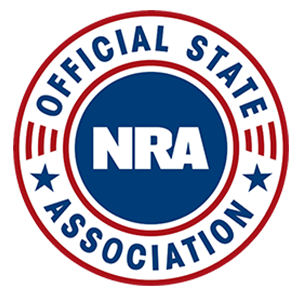Handgun and Long Gun Sales Information.
A guide to owning handguns in Massachusetts.
Link to sales info on MA. State website
Link to MA Firearms Roster Listing
Common Questions Regarding Handgun and Long Gun Sales In MA.
Buying a Handgun in Massachusetts
Are you confused about the process of buying handguns in Massachusetts? You are not alone.
GOAL has created this overview to help you better understand what is needed to buy a handgun in Massachusetts. These descriptions do not describe the process for people who are not residents of Massachusetts, or to curios and relics dealers, or licensed dealers. This information should not be considered legal advice.
Who Can Buy a Handgun Lawfully?
In order to lawfully purchase a handgun, you must have a license to carry a firearm.
Where Do You Buy Handguns?
Once you have a License To Carry A Firearm, you may lawfully buy handguns from three sources:
-
A state and federally licensed firearms dealer, or
- A duly licensed individual in Massachusetts.
-
An individual from another state – note the handgun MUST be shipped from an FFL on behalf of the seller in the seller’s home state, the handgun MUST be shipped to an FFL in the buyer’s home state. The FFL MUST run all background checks & paperwork before transferring the handgun to the buyer.
What Happens When You Buy From a Dealer ?
In order to be in business in the Commonwealth, a firearms dealer has both a state dealer’s license and a federal dealer’s license (usually called an FFL). These licenses place certain requirements and restrictions on the sale.
The dealer will need to fill out a long yellow form for the federal government, Form 4473. This form will ask you questions about your race, national origin, convictions (if any), date of birth, and more. Using the information on this form, the dealer calls the National Instant Check System (NICS), which will see if you are disqualified by law from purchasing a firearm. In many cases, the dealer is told to “proceed” very quickly. If you have a conviction on your record, or if your name is similar to someone who has a criminal background, or if your identity has been stolen, the sale may be put on hold. The NICS will respond as soon as possible, and the hold could be removed in a matter of hours. The federal government has 3 business days to respond, by law.
Once the okay has been received from the federal government, the dealer will finish filling out the specific information on the gun you wish to purchase.
This same information about the gun, and about you as the buyer, is recorded on a state web portal called the Massachusetts Gun Transaction Portal. When the transactions are complete, you are given a copy of the paperwork to keep. You are not given a copy of the federal form.
Private Sales and Transfers
Massachusetts law allows duly licensed private citizens to transfer firearms between themselves, provided the state is notified of the sale within 7 days and that the individuals can legaly possess the firearm(s) being transferred with the license in their possession. The amount you pay for the gun is not the state’s business.
Just as with the dealer sale, the Massachusetts Gun Transaction Portal is used. Information on the buyer, the seller and the firearms is recorded. The buyer and seller must follow all instructions on the web portal.
An individual may sell no more than four guns to private individuals in a calendar year. There is no limit to the number of guns that an individual may transfer through a dealer.
What About Buying Rifles and Shotguns Out of State?
Federal law allows persons to buy rifles and shotguns from a federally licensed dealer in another state, provided all requirements of the buyer’s and seller’s home state are met. Thus, a Massachusetts resident with a Card or License could lawfully purchase rifles and shotguns from gun stores in other states.
However, state law requires that you record the purchase via the Massachusetts Gun Transaction Portal. The buyer must follow all instructions on the web portal.
What is a Large Capacity Handgun and Why is that Important to Me?
Here’s a simple description of large capacity handguns. A handgun is considered large capacity if:
-
It is in the presence of a large capacity magazine (one that holds more than ten rounds); or
-
if it is on the Large Capacity Weapons Roster.
For a more complete description of the term, see 501 CMR 7.00.
It should be noted that Chapter 140, section 131 33÷44 of the General Laws requires the Secretary of Public Safety to publish the law three times annually in newspapers of general circulation. In 2002, the Executive Office of Public Safety stated it no longer had the money to do such notices, and has instead resorted to publishing it on the internet.
Copies of the large capacity roster are also supposed to be sent to all state licensed dealers. Also, your local licensing authority is supposed to furnish a copy of the roster to all new and renewal applicants for a license to carry a firearm or firearms identification card.
Why Can’t I Buy Certain Handguns that I’ve Seen in Catalogs?
Massachusetts licensed dealers are limited as to what guns which they can sell to you. The dealer can only sell you handguns that comply with two standards – the law (see Chapter 140, section 123 of the Massachusetts General Law), and the regulations of the Attorney General (940 CMR 16.00).
More About the Standards in the Law
Chapter 140, section 123, of the Massachusetts General Laws states that a dealer may only sell guns that can pass a drop test, are not prone to repeat firing, and which meet a certain materials standard.
In order to make this requirement understandable, the state approved “independent testing laboratories” and a testing procedure. Manufacturers of handguns may now choose to pay these labs to perform the tests mentioned in the law.
The labs sent their certified results to the Gun Control Advisory Board, which reviews the results to ensure the tests were performed properly and that the guns passed the tests. They then vote on whether to recommend that the gun be on the Approved Firearms Roster. The Executive Office of Public Safety then acts on these recommendations and publishes a new roster. These regulations are found in 501 CMR 7.00.
Some smaller manufacturers can not afford to pay for the testing. Still other manufacturers object to the whole concept of the testing, and have no wish to comply. And manufacturers of top of the line competition models costing $1500 and up have no desire to pay someone to drop three of their firearms onto a concrete surface. Therefore, before the testing laboratories were even approved by the state, it was clear several product lines would not be available through Massachusetts licensed dealers.
The Bottom Line on the Standards of the Law
In order for a dealer to sell a handgun in Massachusetts a gun must be on the Approved Weapons Roster. There is only one exemption, established by section 79 of Chapter 180 of the Acts of 1998:
“SECTION 79. Clause Eighteenth to Twenty-first, inclusive, of said section 123 of said chapter 140, inserted by section 19 of this act, shall not apply to any firearm lawfully owned or possessed under a license issued under said chapter 140 on the effective date of this act.”
More About the Standards of the Attorney General
The second standard a gun must pass is one put forth by the Attorney General as a supposed consumer protection measure. See GOAL’s Regulatory Fraud report for more information on the history of these regulations.
The Attorney General has gone on record (see Enforcement notice #3, issued February 2002) as stating that guns that are on the Approved Weapons Roster comply with portions of the regulations.
However, in addition, the Attorney General requires that:
-
Guns sold by dealers must have mechanisms that preclude an average five year old from operating the handgun, such as requiring multiple motions or a ten pound trigger pull;
-
Guns must have either a load indicator or magazine safety disconnect.
Generally speaking, manufacturers provide notice to the Attorney General that they believe their guns meet his standards. If the AG does not object, the manufacturer will release the firearms for sale in Massachusetts.
Exemptions: Even if a manufacturer has not certified that their guns are available to the Attorney General, they could be sold under certain limited conditions. That is, the Attorney General’s regulations will not prohibit the sale of:
-
guns manufactured prior to October 21, 1998;
-
guns sold to law enforcement or military;
-
guns solely designed and sold specifically for target shooting competition;
-
museums or educational collectors; and
-
antique firearms.
These regulations have caused a fair amount of confusion. First, because the Attorney General has refused to compile a list of firearms which meet the standards. Secondly, because that office’s standard response to questions is “you’ll have to ask your lawyer.”
Between the two standards, the number of guns available to Massachusetts’s citizens has been greatly diminished.
Can I Bypass the Regulations and Standards in the Law by Buying a Handguns From a Dealer in Another State?
By federal law, a dealer from another state may not sell you a handgun directly, he must ship the handgun to a dealer in your state, where the transfer takes place. This means the gun must still comply with the Attorney General’s standards, and the standards in the law.
Do These Standards Apply to Private Sales?
No, the standards of the law and of the Attorney General, apply only to retail sales by dealers, not to private sales between individuals.
Are Private Citizens Forbidden to Own Guns if They are NOT on the Approved Weapons Roster?
No, the list is a list of firearms that can be sold at retail by licensed dealers. Neither standard the law or the Attorney General limits directly the type of guns a citizen may own.
Why Hasn’t This Been Brought to Court?
It has. The Attorney General first proposed these regulations in 1996. At that time, a group representing the industry, the American Shooting Sports Coalition, sought and received an injunction against the regulations, so that they were not allowed to take effect until the court case had been heard. Although the manufacturers won at the lower level courts, they lost at the higher level due to a failure to appeal a certain decision. This was compounded by the fact that the ASSC was dissolving at the time. Their attorney failed to notify other groups, such as GOAL, NRA, or NSSF of the pending appeal, or we most certainly would have picked up on the appeal. Because of this court action, many of the avenues we would have chosen have been closed to us.

